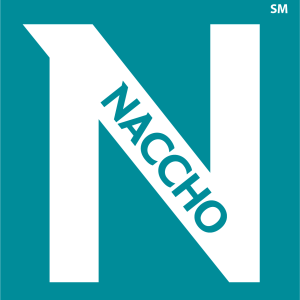Through the Vector Control Collaborative (VCC) Program, the National Association of County and City Health Officials (NACCHO) is establishing a growing network of local vector control organizations that can share resources, experiences, and lessons learned with other local vector control programs. The VCC provides a critical opportunity for local vector control programs to share best practices in vector control and surveillance and guidance, tools, and recommendations in implementing Integrated Pest Management (IPM) and Integrated Mosquito Management (IMM) principles. Vector Control Collaborative mentors provide targeted assistance to programs that are looking to build their capacity to detect and respond to mosquito-borne and tick-borne disease threats.
This page highlights several foundational training resources that have been helpful to past VCC program participants, and which can be helpful for any local health department seeking educational resources on mosquito and tick control programs.
Online Training Resources
- Tick Surveillance Practices in the Northeast: A complete webinar recording, plus presentation slides, the question-and-answer discussion, and supplemental resource materials, are available and are open-access.
- Vector Control for Environmental Health Professionals (VCEHP): This is an 11-course learning series developed by the Centers for Disease Control and Prevention (CDC) and partners. The program emphasized the use of IPM to address public health pests and vectors that spread disease.
- Mosquito Training Course for Pest Managers: This is an online course in mosquito training for pest managers. Participants who complete the 11 modules in the course will learn to identify and understand the mosquitoes of major importance in the urban environment, their life cycles, the general methods of control, personal protective equipment required for safe insecticide application, and the laws and regulations governing mosquito control for the urban pest management industry.
- Mosquito Surveillance: Trapping and Biology: On June 7, 2018, NACCHO hosted a webinar with Florida’s Lee County Mosquito Control District based on one of the most popular technical training sessions from this year’s Vector Control Summit. Rachel Morreale and Milton Sterling reviewed how to select, use, and maintain different types of mosquito traps. Participants also learned common errors associated with the use of each type of trap. Listen to the complete recording.
- Using Mosquito Surveillance to Make Decisions about Control Methods: On August 23, 2018, NACCHO hosted a Q&A-based webinar to provide technical assistance in the most pressing areas of vector control. Dr. Roxanne Connelly from CDC led the stimulating discussion, along with a panel of local mosquito control experts, on making informed decisions about integrated control methods.
- The CDC bottle bioassay video & resources: The CDC bottle bioassay determines if a particular formulation (combination of the active ingredient in the insecticide and inactive ingredients) is able to kill an insect vector, such as a mosquito, at a specific location at a given time. It can detect resistance to insecticides in mosquitoes and other insects. The technique is simple, rapid, and economical, compared with alternatives. The results can help guide the choice of insecticide used for spraying.
In-Person Training Resources
- Vector Biology Boot Camp: The Vector Biology Boot Camp is an annual event offered by the Northeast Regional Center for Excellence in Vector-Borne Diseases and the Louis Calder Center of Fordham University, providing hands-on learning opportunities in vector surveillance program operations.
- FMCA DODD Short Courses: The Dodd Plenary Short Courses are held for five days during the winter, usually at the end of January or beginning of February. The courses, taught by recognized experts, cover topics such as mosquito identification, and chemical and biological control techniques. Visit www.floridamosquito.org for more information.
- The U. S. National Tick Collection at the James H. Oliver, Jr., Institute for Coastal Plain Science (Georgia Southern University), and the CDC Southeastern Center of Excellence in Vector Borne Diseases is planning to offer the “3rd Annual Tick Workshop” at Georgia Southern (Statesboro, GA). However, the workshop is currently postponed due to the COVID-19 pandemic. Visit https://cosm.georgiasouthern.edu/usntc/center-of-excellence-tick-workshop-2020/ for updates.
Finally, interested program officials are encouraged to explore the links below, and connect with the Center of Excellence in your region for additional vector-related training opportunities and resources.
- The Northeast Regional COE at Cornell University
- The Pacific Southwest COE at the University of California, Davis and Riverside
- The Southeastern Regional COE at the University of Florida
- The Western Gulf COE at the University of Texas Medical Branch in Galveston
- The Midwest COE at the University of Wisconsin, Madison
More resources on vector surveillance and control can be found by searching the Vector Control Toolkit in the NACCHO Toolbox. The NACCHO Toolbox is a free, online collection of public health tools that have been created and shared by members of the public health community. To view the Vector Control Toolkit, visit the NACCHO Toolbox and select “Vector Control Toolkit” from the dropdown menu.
If you have any questions about these resources, or would like to submit a tool of your own to the Vector Control Toolkit, please contact the NACCHO Vector Control Program at [email protected].






